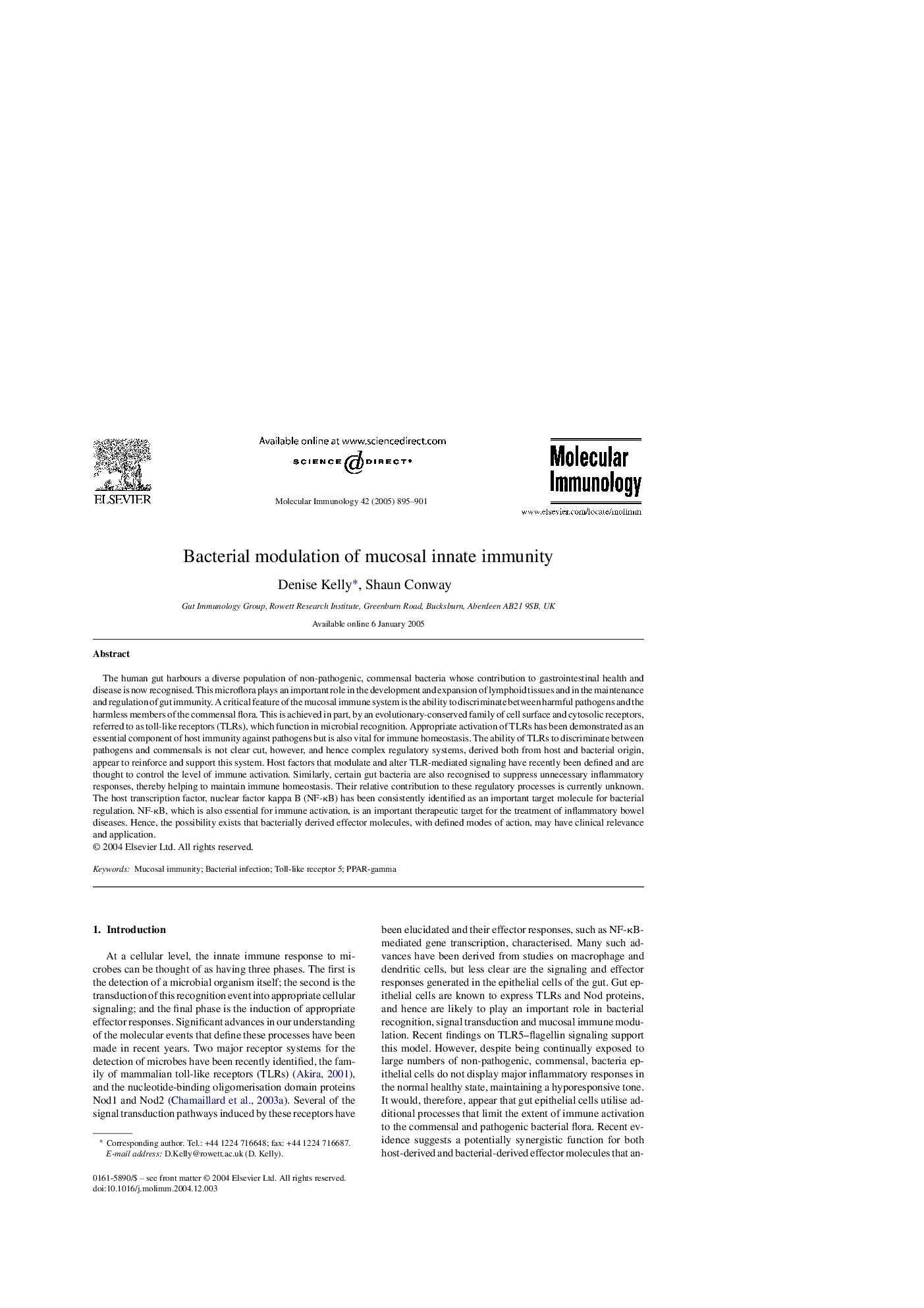| کد مقاله | کد نشریه | سال انتشار | مقاله انگلیسی | نسخه تمام متن |
|---|---|---|---|---|
| 9141963 | 1163890 | 2005 | 7 صفحه PDF | دانلود رایگان |
عنوان انگلیسی مقاله ISI
Bacterial modulation of mucosal innate immunity
دانلود مقاله + سفارش ترجمه
دانلود مقاله ISI انگلیسی
رایگان برای ایرانیان
کلمات کلیدی
موضوعات مرتبط
علوم زیستی و بیوفناوری
بیوشیمی، ژنتیک و زیست شناسی مولکولی
زیست شناسی مولکولی
پیش نمایش صفحه اول مقاله

چکیده انگلیسی
The human gut harbours a diverse population of non-pathogenic, commensal bacteria whose contribution to gastrointestinal health and disease is now recognised. This microflora plays an important role in the development and expansion of lymphoid tissues and in the maintenance and regulation of gut immunity. A critical feature of the mucosal immune system is the ability to discriminate between harmful pathogens and the harmless members of the commensal flora. This is achieved in part, by an evolutionary-conserved family of cell surface and cytosolic receptors, referred to as toll-like receptors (TLRs), which function in microbial recognition. Appropriate activation of TLRs has been demonstrated as an essential component of host immunity against pathogens but is also vital for immune homeostasis. The ability of TLRs to discriminate between pathogens and commensals is not clear cut, however, and hence complex regulatory systems, derived both from host and bacterial origin, appear to reinforce and support this system. Host factors that modulate and alter TLR-mediated signaling have recently been defined and are thought to control the level of immune activation. Similarly, certain gut bacteria are also recognised to suppress unnecessary inflammatory responses, thereby helping to maintain immune homeostasis. Their relative contribution to these regulatory processes is currently unknown. The host transcription factor, nuclear factor kappa B (NF-κB) has been consistently identified as an important target molecule for bacterial regulation. NF-κB, which is also essential for immune activation, is an important therapeutic target for the treatment of inflammatory bowel diseases. Hence, the possibility exists that bacterially derived effector molecules, with defined modes of action, may have clinical relevance and application.
ناشر
Database: Elsevier - ScienceDirect (ساینس دایرکت)
Journal: Molecular Immunology - Volume 42, Issue 8, May 2005, Pages 895-901
Journal: Molecular Immunology - Volume 42, Issue 8, May 2005, Pages 895-901
نویسندگان
Denise Kelly, Shaun Conway,